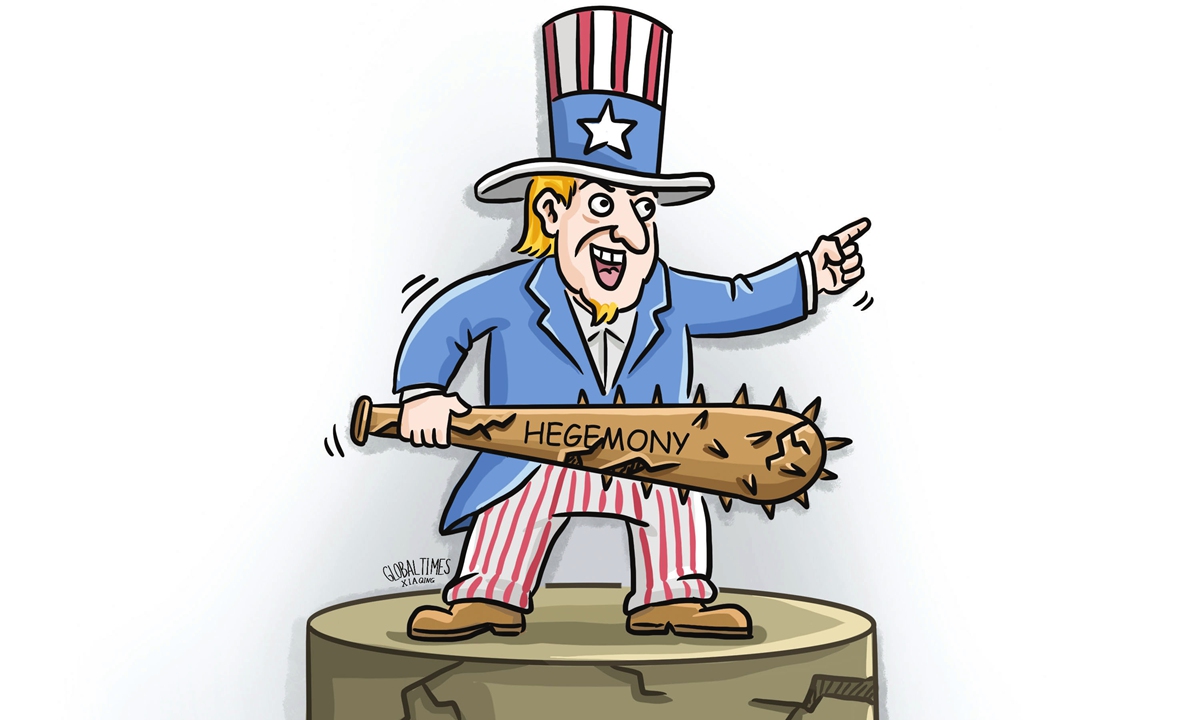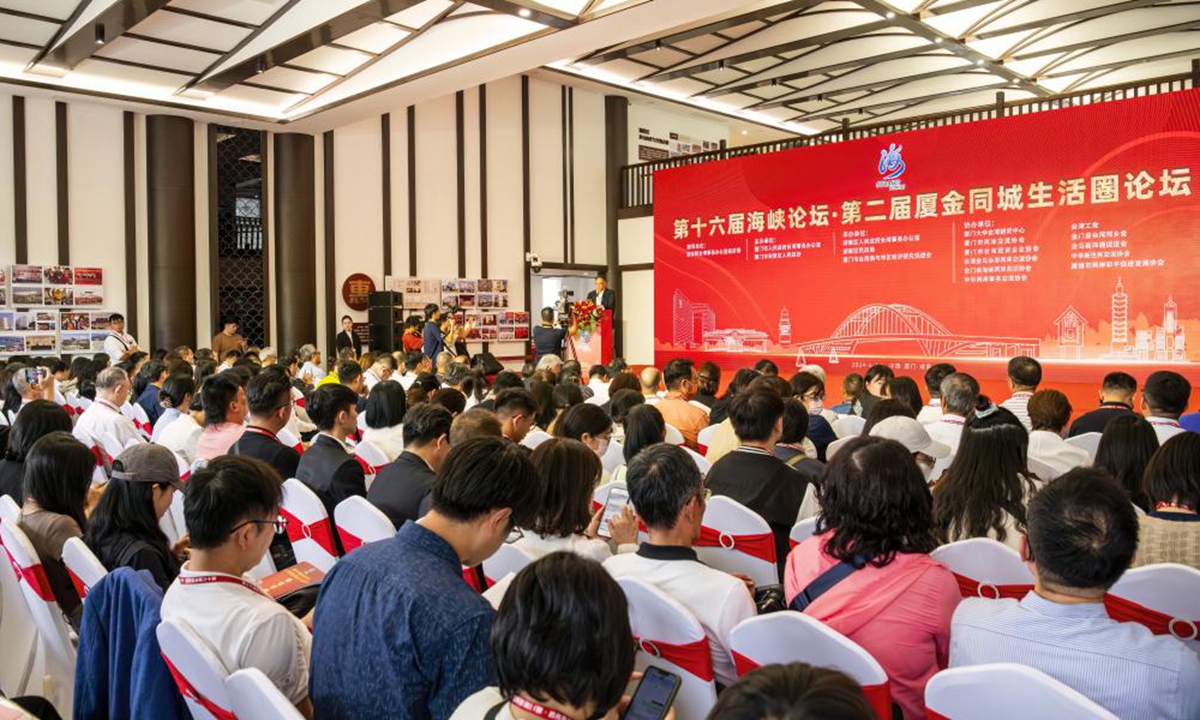
Illustration: Xia Qing/ GT
The
mk world situation today is full of uncertainties. One of the fundamental reasons for this is that the US, as the world's "hegemonic" country, is declining in terms of its ability to control internal and external situations. A clear example is the Joe Biden administration's repeated lobbying and warnings having failed to get Israel to stop its military offensives in the southern Gaza city of Rafah.
As far as the domestic situation is concerned, facing social divisions that are difficult to bridge, the "separation of powers" political system of the US is becoming increasingly polarized. In Congress, the legislative body, partisanship has intensified, leading to a significant decline in its legislative capabilities and efficiency. Any legislative proposal will inevitably trigger a fierce battle between the two parties, making the formulation of the bill a game of exchange of interests between the two parties.
The US federal court and state courts are constantly seeing inconsistent or even contradictory positions in judging cases. More and more landmark cases - such as whether former president Donald Trump can obtain the right to run for the presidential nomination, national border management and the identity of gun owners - are difficult to judge and execute. This further leads to chaos and division in society.
Law enforcement and governments at all levels have become increasingly ineffective, and conflicts between the federal government and state governments have occasionally broken out. A public confrontation between federal troops and the state-controlled National Guard over the border issue in Texas earlier this year serves as a prime example. The diminishing management and control capabilities of the US government can be attributed to the significant divide in the national identity of the US, leading to an incompatibility between the two major societal forces, liberals and conservatives.
Washington's ability to control international situations has also declined significantly.
The US is increasingly bypassing international organizations such as the UN to handle international affairs, despite the fact that the international system centered on the UN was established under the leadership of the victorious countries led by the US after World War II. After George W. Bush took office, the US had increasingly resorted to unilateralism in its foreign policy pursuits. Although Barack Obama tried to steer the US back toward "internationalism," "America First" unilateralism under Trump's administration led to the abandonment of the US' internationalist policy orientation. Consequently, the US finds itself in a weakened global position, with its influence and prestige significantly diminished.
Since Biden took office, he has increasingly relied on a small circle of allies in an attempt to manipulate international affairs and promote strategic implementation, which is euphemistically called "minilateralism." However, the US' leadership status among its allies determines that the "minilateralism" pursued by the US is actually a sort of covert unilateralism. The result is that the so-called international order led by the US is far from the international system centered on the United Nations (UN). The US' increasingly unilateral behavior in handling international affairs has led to a sharp decline in its prestige and credibility, and its ability to control situations has also declined accordingly.
The decline in the US' ability to control the situation is particularly prominent in today's major global affairs. In the conflict with Russia, Ukraine has gradually been at a disadvantage since the counteroffensive last year, which is directly related to the decline in the US' ability to control the situation. After the Israel-Palestine conflict broke out in October last year, the US' biased stance on Israel has greatly slashed the US' ability to control its allies. In April, the UN Security Council reconsidered Palestine's membership application to join the UN after 13 years. US allies such as France, Japan and South Korea voted in favor, while the US was the only one to veto the resolution.
Amid unprecedented changes unseen in a century, the decline in the US' internal and external control capabilities is not good news from an objective perspective. In this context, the US will further shift its internal conflicts outward. In the foreseeable future, it will be difficult for any country or organization to establish a substitute for the current international order. This is also detrimental to China's development. After all, as a peace-loving nation and the world's largest trading country, China prefers a peaceful, stable and prosperous world, and today's international order is indispensable for maintaining such an environment.
The author is a professor from Shanghai International Studies University. opinion@globaltimes.com.cn


 Vivid details in relics make for windows into the past
Vivid details in relics make for windows into the past Despite US obstruction, Chinese semiconductor industry finds right way to compete
Despite US obstruction, Chinese semiconductor industry finds right way to compete The triple significance of the successful holding of Straits Forum: Global Times editorial
The triple significance of the successful holding of Straits Forum: Global Times editorial The triple significance of the successful holding of Straits Forum: Global Times editorial
The triple significance of the successful holding of Straits Forum: Global Times editorial